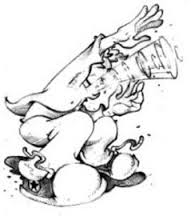Largehearted Boy is a music blog featuring daily free and legal music downloads as well as news from the worlds of music, literature, and pop culture. In the Book Notes series, authors create and discuss a music playlist that relates in some way to their recently published book. Previous contributors include Bret Easton Ellis, Kate Christensen, Kevin Brockmeier, George Pelecanos, Dana Spiotta, Amy Bloom, Aimee Bender, Myla Goldberg, Heidi Julavits, Hari Kunzru, and many others.
Karen Karbo’s The Diamond Lane is a masterfully told satirical comic novel.
Library Journal wrote of the book:
“A deft, tragicomic social satire–of Los Angeles and the movie biz in particular and modern mores in general–noteworthy for the complexity of its characters, crisp prose, and loopy comic style.”
In her own words, here is Karen Karbo’s Book Notes music playlist for her novel The Diamond Lane:
When I sat down to begin The Diamond Lane (G.P. Putnam’s Sons, 1991) it was called The Young and the Desperate, and was about my then-tribe, thirtysomethings from my film school graduate program who were mostly in the process of not breaking into Hollywood. My class at USC had graduated a few stars, but mostly we were struggling. We worked in offices as slaves to demanding agents. We worked on the set of movies, as assistants or in the art department (i.e. lugging around props). We snagged post-production jobs — editor, sound designer — that paid so well we could never give them up. By the time most of us hit 30, it was starting to dawn on us that try as we might, we might not make it at all. The Diamond Lane is, in many ways, the story of dreams on life support.
The playlist is culled from a few mix tapes I unearthed recently from the time. They were in heavy rotation on my Walkman during the writing of the book, and also during and immediately after its publication. It’s more historical than interpretive, and frankly pretty embarrassing. The urge to recast myself as a cool music chick listening to bootleg tapes of some proto-Riot Grrrrl garage band is powerful, but instead I’m going to stand up in the name of the ecumenical middle brow taste. Don’t judge (as no one said in 1991), and feel grateful there is not one Eagles song on the playlist.
[video_lightbox_youtube video_id=”MtDhtadoeUk&rel=0″ width=”640″ height=”480″ anchor=”I Love LA, Randy Newman (1983)”] I’m not sure when people started taking Los Angeles seriously, but it was long after Newman’s dumb-but-lovable anthem. This song is actually not on my mix tapes, but it echoes what I’ve been told is the sweet-sour satirical tone of the novel. Look at that mountain/look at that tree/Look at that bum, man/He’s down on his knees. Newman is facetious, has already noted the economic disparity, even in the go-go 80s, but he still loves the place, roaring down the wide sun-bleached streets with a “big nasty redhead” by his side. Most of my characters actually hate LA, but like everyone trying to break into the business, they’re stuck there. I also once to lived off the utterly unremarkable Sixth Street. (We love it! We love it!)
[video_lightbox_youtube video_id=”YufV_Lkine8&rel=0″ width=”640″ height=”480″ anchor=”Once in a Lifetime, Talking Heads (1981)”] Those lyrics, once iconic, heavily influenced my main character’s attitude: Is this my beautiful house? Is this my beautiful wife? How did I get here? Mouse FitzHenry is a serious documentary filmmaker, engaged to be married, and wonders what she’s getting herself into. She’s been living with her boyfriend and struggles with marriage as a concept. Why would anyone in these modern times opt to do such a thing? And yet, she goes ahead, thinking she’ll document the wedding planning process in a new film. It was meant to be satirical, but wound up being prophetic. TLC’s Say Yes to the Dress has had a whopping 8 season run, and spawned a handful of wedding industry-related spin-offs.
[video_lightbox_youtube video_id=”mJ58TVYNFro&rel=0″ width=”640″ height=”480″ anchor=”Something to Talk About, Bonnie Raitt (1991)”] Gossip is a big part of the world of the book. The two sisters, Mouse and Mimi, at the center of the story are always comparing notes, and in trying to interpret what’s going on, transform the truth. Mouse is engaged, but her old boyfriend shows up. Mimi is having an affair with a guy who’s “almost divorced.” This being a Hollywood story, there is duplicity everywhere you turn. Let’s give them something to talk about/a little mystery to figure out.
[video_lightbox_youtube video_id=”waacof2saZw&rel=0″ width=”640″ height=”480″ anchor=”You’re Unbelievable, EMF (1991)”] Actually, what’s unbelievable is that this 1990 UK hit wound up on my mix tape. How did I come upon it? When I was in London on tour for my first novel, this song was playing in every pub on every high street in town. After a decade of heavily produced dance music, I remember feeling titillated by the grimy alt vibe. One of the main characters operates on the principal that if you just keep talking, eventually people will have to listen to you, regardless of what you’re saying, and I loved the refrain The things, you say/Your purple prose just gives you away/The things, you say/You’re unbelievable. Plus, that’s Andrew Dice Clay shouting Oh! (What the fuck was that?) at the beginning of every chorus.
[video_lightbox_youtube video_id=”x8H2-YZUw40&rel=0″ width=”640″ height=”480″ anchor=”U Can’t Touch This, MC Hammer (1990)”] Jaunty lyrics. Girls rocking black Reebok hi-tops and black spandex bicycle shorts. Mr. Hammer in a wardrobe of harem pants with the sagging crotch. We loved this stuff once. Or at least my Jazzercise leader did.
[video_lightbox_youtube video_id=”QLoKSS1P2No&rel=0″ width=”640″ height=”480″ anchor=”People’s Parties (Joni Mitchell 1974)”] In film school I made a short about a woman who belonged to a group of what I thought of as “Beverly Hills people.” She was just acceptable enough to be included in the group, but still clearly the outsider. This dynamic would show up in The Diamond Lane, where the characters are privy to enough Hollywood inside baseball to know just how far they are away from achieving their dreams. In my student film the outsider invited the Beverly Hills people to a picnic and poisoned them all with hot dogs cooked on oleander twigs. Literary side note: in 1999 Janet Fitch, friend and fellow Angeleno, published White Oleander, which also featured an oleander-related homicide. Is this murder by oleander (which I grew up calling freeway bushes) a popular SoCal fantasy?
[video_lightbox_youtube video_id=”if-UzXIQ5vw&rel=0″ width=”640″ height=”480″ anchor=”Losing My Religion, REM (1991)”] My first job out of film school was as an assistant to a literary agent. We were sworn at and routinely abused. “Hostile work environment” didn’t begin to cover it. One day the girl in the desk next to me, who hailed from Louisiana lost her shit over something, slammed down the phone and said, I am losing my religion! When the REM song was a huge hit in the early ’90s I felt smug knowing that it wasn’t about becoming an atheist. This sort of petty and pathetic one-upsmanship is the lingua franca of Mouse and her sister, Mimi. It’s a way for them to argue without really arguing.
[video_lightbox_youtube video_id=”AhcttcXcRYY&rel=0″ width=”640″ height=”480″ anchor=”About a Girl, Nirvana (1989)”] Ethereal punk Kurt Cobain, sitting on a stool in his old-man cardigan strumming his guitar and singing his Beatles’ inspired lament. It was a college radio staple at first, pre-Nevermind, Nirvana’s breakout allbum with the floating baby and dollar bill gracing its beautiful blue cover. I still adore the unvarnished tune, the Yoda-like lyrics (I need an easy friend/I do with an ear to lend), admire the simple fusion of pop and punk. Music note: Cobain was a huge admirer of R.E.M.
[video_lightbox_youtube video_id=”CxKWTzr-k6s&rel=0″ width=”640″ height=”480″ anchor=”Even Flow, Pearl Jam (1991)”] The decades turned and suddenly rock stars are back to wearing crappy ass t-shirts and swinging around their very long hair. Gone the harem pants, gone the big suits. Gone every new wave affection. I’m all for it. Even Flow, is also about a homeless man, the Seattle grunge interpretation of Look at that bum, man/He’s down on his knees.The week The Diamond Lane is published I’m working as a foley walker on Gus Van Sant’s “My Own Private Idaho” and it seems like whenever I’m not locked in my sound proof booth providing the foot falls and leather jacket squeaks for the character played by Keanu Reeves, this song is on the radio. I’m most certainly misremembering this, but the song heralded a big change: the same week my book comes out, I learn I am pregnant with my daughter. About the same time, I ditch my Walkman for a Discman.








